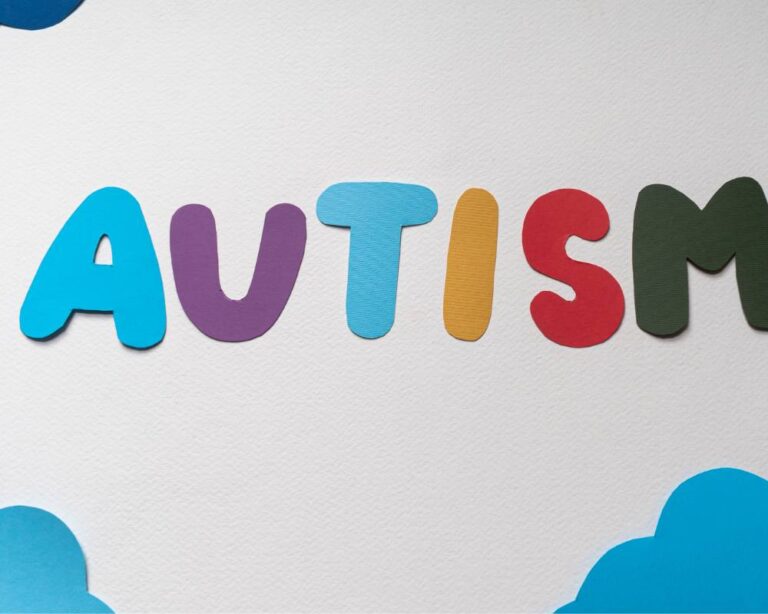Depression often makes people feel isolated, but your words can be a lifeline—if you know how to say them right. You may worry about saying the wrong thing or making it worse, but small, intentional phrases can make a big difference. Whether it’s offering support or just listening, the right approach helps them feel seen. Want to learn how to be that person? Let’s analyze seven ways to show up meaningfully.
Tell Them You Care and Are There for Them
No conclusion or summary—transition smoothly to the next subtopic.)* Whenever someone you love is struggling with depression, your words and actions can make a world of difference.
Start by telling them you care—simple phrases like “I’m here for you” or “You matter to me” remind them they’re not alone. Regular check-ins, even just a quick text, show you’re considering them without pressure.
Listen without judgment whenever they open up; sometimes, they just need to feel heard. A hug or sitting quietly together can offer silent support, helping them feel valued. Compassion goes a long way—acknowledge their feelings instead of dismissing them.
Encourage small steps, but avoid pushing too hard. Your presence alone can be a lifeline, reinforcing that their mental health matters to you.
Ask How You Can Help Today
Ask how you can help today by expressing genuine concern—simple questions like, “What do you need right now?” show you mean it.
Offer specific assistance, like picking up groceries or sitting with them, so they don’t feel burdened by vague offers.
Respect their response, even if they say no, and remind them you’re there when they’re prepared.
Express Genuine Concern
When someone you care about is struggling with depression, expressing genuine concern can make a world of difference. It’s not just about saying the right thing—it’s about showing up with real support.
Here’s how to do it:
- Ask directly: “How can I help today?” This shows you’re ready to offer help tailored to their needs.
- Listen without judgment: Let them talk about their feelings, and validate their experiences.
- Check in regularly: A simple “How are you feeling?” reinforces your connection.
- Be present: Sometimes, just sitting with them in silence speaks louder than words.
Your goal isn’t to fix everything but to remind them they’re not alone in their mental health experience.
Small, consistent acts of care build trust and comfort.
Offer Specific Assistance
Whenever someone’s managing with depression, even the simplest tasks can feel impossible. Instead of saying, “Let me know in case you need anything,” offer specific assistance. Ask, “Can I pick up groceries for you today?” or “Would it help in case I made dinner?”
This takes the pressure off them to ask for help. Small tasks like laundry or walking their dog can make a big difference. Use open-ended questions like, “What’s feeling most overwhelming right now?” to guide your support. Suggest a day and time to help, so they don’t have to plan.
Remind them it’s okay to ask for help—depression can make connection feel hard, but your encouragement shows they’re not alone. Tailor your help to their needs, not just your assumptions.
Respect Their Response
Even though it’s natural to want to fix things for someone struggling with depression, respecting their response matters just as much as offering help.
Whenever you ask, “How can I help you today?” you show you’re listening to their needs and ready to support them in a way that works for them.
Here’s how to respond with care:
- Ask directly: Encourage them to communicate what they need, whether it’s space or a specific task.
- Accept their answer: Understand their response could be vague or hesitant—don’t push.
- Stay flexible: Their needs might change daily; your commitment to adapting shows real support.
- Reassure gently: Remind them you’re there, reinforcing their well-being without pressure.
Respecting their choices builds trust and helps them feel understood.
Listen Without Judgment
Whenever someone shares their struggles with depression, give them a safe space by listening without interrupting or judging.
Acknowledge their feelings as real and significant so they don’t feel alone or misunderstood.
Let them talk openly by asking questions that encourage them to express themselves, not just quick fixes.
Provide a Safe Space
Depression can make someone feel alone, but listening without judgment creates a space where they don’t have to hide. To provide free and confidential emotional support, focus on making them feel safe. Here’s how:
- Actively listening—Put away distractions, nod, and show you’re present.
- Ask open-ended questions—”How’s this affecting you?” invites deeper sharing.
- Create a non-judgmental environment—Avoid advice unless asked; just be there.
- Notice signs and symptoms—If they mention fatigue or hopelessness, acknowledge it gently.
Your role isn’t to fix their mental health path but to validate emotions with patience. A simple “That sounds really hard” can mean more than solutions.
Compassionate tips like these remind them they’re not a burden—just human.
Validate Their Feelings
Making someone feel heard can change how they carry their pain. Whenever you validate their feelings, you show them their emotions matter without trying to fix everything.
Listen without jumping to advice—just being there says, “I see you.” Depression often makes people feel alone, but your compassion bridges that gap.
Phrases like “That sounds really hard” or “I’m here with you” build trust and emotional connection. Avoid dismissing their pain with “It’ll pass” or “Cheer up.” Instead, encourage them by acknowledging their struggle.
This support helps them feel less isolated and more understood, which is huge for coping. Your presence alone can lighten the weight, even though you don’t have all the answers.
Just listen—it’s more powerful than you perceive.
Encourage Open Expression
One of the most powerful ways to support someone with depression is to let them speak freely—without fear of judgment.
Listening without judgment helps them feel safe to share their struggles, reducing feelings of isolation. Your calm demeanor and patience and comprehension show you truly care, empowering individuals to open up at their own pace.
Here’s how to encourage open expression effectively:
- Ask open-ended questions like, “What’s been on your mind lately?” to foster open communication.
- Validate their emotions by saying, “That sounds really tough,” to acknowledge their feelings.
- Avoid interrupting—let them finish before responding to keep the conversation flowing.
- Stay present with nods or brief words to show you’re engaged without steering the talk.
This approach helps them feel heard and supported.
Encourage Them to Seek Professional Help
Whenever someone’s struggling with depression, it’s easy for them to feel like they should handle it alone—but just like any other health issue, getting professional support can make all the difference.
Depression is a medical condition, not a personal flaw, and expert intervention can help. Encourage them to seek a mental health professional, whether for therapy or medication. Remind them treatment works—many people recover with the right support.
Normalize asking for help; nearly 1 in 3 people face depression in their lifetime. Offer to help find resources or even go with them to appointments.
Should they be in crisis, share the 988 Suicide and Crisis Lifeline for immediate support. Let them know they don’t have to figure this out alone—help is available.
Remind Them How Much They Matter
Even though depression makes them feel invisible, reminding someone they matter can be a lifeline.
Whenever feelings of worthlessness take over, your words can help them feel valued and understood. Here’s how to do it with care:
- Use simple affirmations: Say, “You’re significant to me,” or “Your life makes a difference.” These small reminders combat isolation.
- Highlight their strengths: Point out specific qualities or achievements they’ve forgotten. It reinforces their self-worth.
- Express appreciation: Regularly tell them why you’re grateful for them. It builds emotional connection.
- Create a safe space: Let them know their feelings are valid. Say, “I’m here for you,” to make them feel secure.
Your words can be the light they need—gentle, consistent, and full of heart.
Validate Their Feelings and Experiences
Small gestures count too. Nodding, paraphrasing their words, or simply saying, *”That sounds really hard,”* reinforces comprehension.
Validation isn’t about fixing things; it’s about standing beside them in their pain.
Be Patient and Consistent in Your Support
- Regular check-ins: A simple text or call reminds them of your presence without pressure.
- Encourage slowly: Let them share at their pace—don’t rush their healing.
- Offer practical help: Small acts like running errands show care in tangible ways.
- Stay compassionate: Even though they push you away, your steady support reassures them.
Depression isn’t linear, so your consistent effort matters more than grand gestures.
Keep showing up, even as it’s hard—your understanding can be their anchor.





